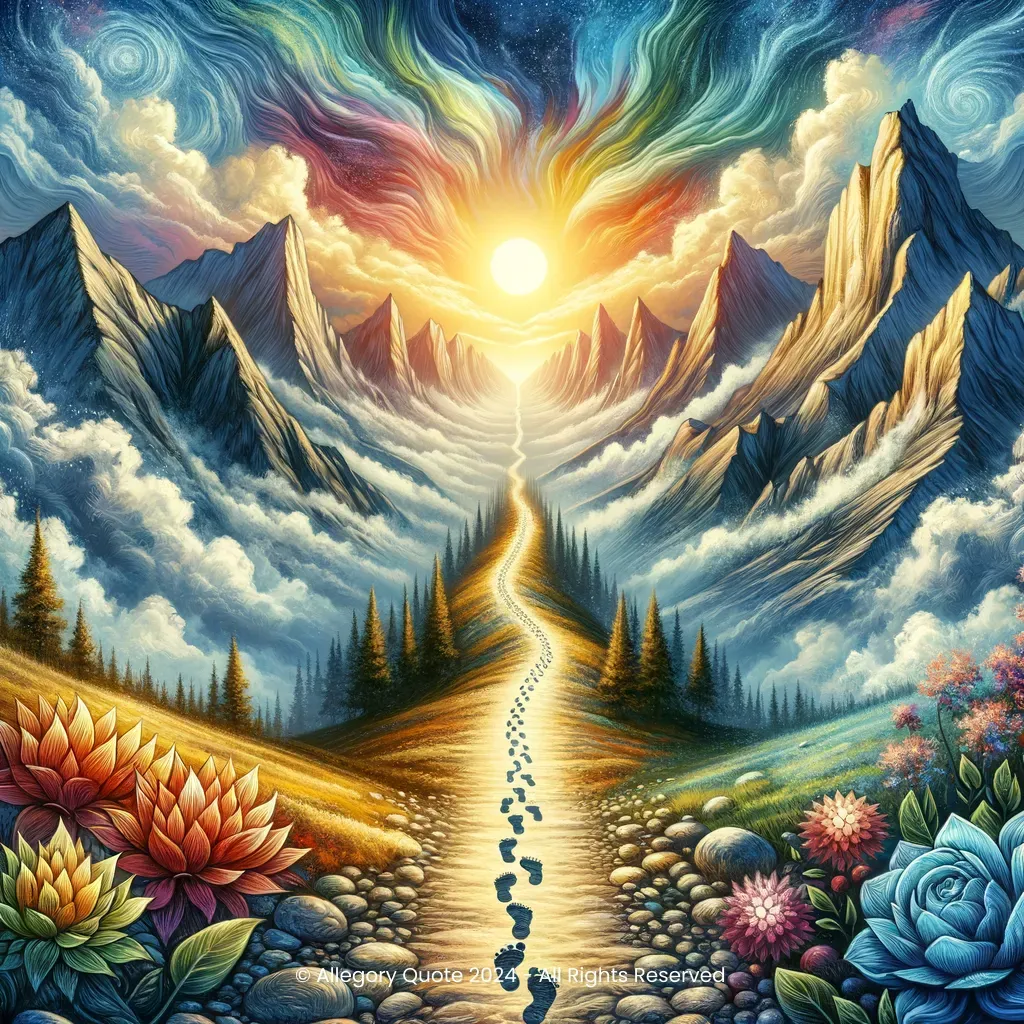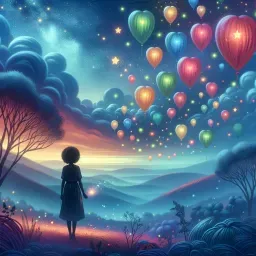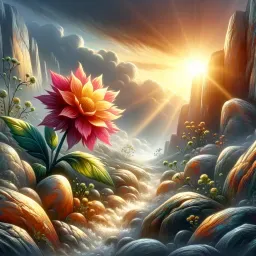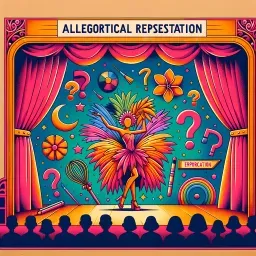You gotta put your behind in your past

0
0
0
0
- Meaning
- The phrase conveys a powerful message about the necessity of moving on from past events that may hinder personal growth. Philosophically, it speaks to the ideas of acceptance and progression, suggesting that clinging to past regrets or failures can obstruct one's ability to embrace the present and future. Psychological concepts of closure and healing emphasize releasing the past to foster well-being. Historically, many cultures have explored the significance of the past's influence on the individual, making this advice relevant across different eras and societal contexts.
- Allegory
- The image elements reflect the essence of the phrase by symbolizing the journey of leaving past burdens behind to embrace a brighter future. The path signifies the choice to move forward, while the mountains fading into clouds represent the past being left behind. The footprints emphasize the active movement toward growth, and the blooming flowers illustrate the beauty and potential of new beginnings.
- Applicability
- In personal life, this phrase encourages individuals to reflect on their past experiences, learn from them, but ultimately not allow them to define or control their present or future. It suggests actively letting go of regrets or failures — an essential practice for mental and emotional well-being. This lesson can be particularly helpful in relationships, career changes, or personal challenges where past experiences may weigh heavily on one's decisions.
- Impact
- The phrase has had a significant impact on popular culture, especially among fans of 'The Lion King.' It has inspired discussions about personal growth and the importance of resilience. Many motivational speakers and life coaches reference this phrase, underscoring its relevance in modern self-help discourse. Moreover, its memorable nature ensures that it often resurfaces in conversations about personal empowerment and growth.
- Historical Context
- The phrase likely emerged in the late 20th century, around the time 'The Lion King' was released in 1994. The film itself touches on themes of growth, responsibility, and the importance of confronting the past. The phrase fits into a larger cultural conversation about self-improvement prevalent in the 90s, symbolizing a shift towards personal empowerment and healing during that period.
- Criticisms
- There has been some criticism regarding the simplification of the complex process of healing from trauma or difficult experiences. Some argue that merely 'putting the past behind' doesn't address the underlying issues that require resolution, suggesting that true healing involves confronting and processing past experiences rather than ignoring them. This criticism emphasizes the need for a nuanced understanding of emotional health.
- Variations
- Variations of this phrase exist in different cultures, where the sentiment may vary slightly depending on cultural attitudes towards the past. For example, in some Eastern philosophies, there is a strong emphasis on accepting and learning from past experiences, rather than merely letting them go. This reflects a more integrated view of one's past as part of the journey of self-discovery rather than something to discard.
-

I’m just a girl, standing in front of a boy, asking him to love her.
-

A dream is a wish your heart makes.
-

The flower that blooms in adversity is the most rare and beautiful of all.
-

I'm the king of the world!
-

Put that thing back where it came from or so help me!
-

When you’re the best of friends, having so much fun together.
-

Keep moving forward.
-

You are my greatest adventure.
-

Nobody gets left behind.
-

What do you want me to do, dress in drag and do the hula?
No Comments